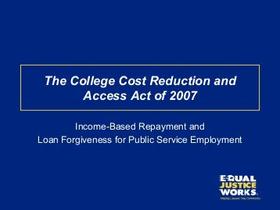- Located in beautiful south central Pennsylvania, CSB is a small, private school with campuses in York county and Lancaster county. Our Associate in Specialized Business degree and diploma programs provide students with relevant, practical, problem-solving curriculums for today's world of business and technology.
School Highlights
Consolidated School of Business-Lancaster served 99 students (96% of students were full-time).
The college's student-teacher ratio of 12:1 was lower than the state community college average of 15:1.
Minority enrollment was 67% of the student body (majority Hispanic), which was more than the state average of 48%.
School Overview
Consolidated School of Business-Lancaster
(PA) Community College Avg.
Carnegie Classification
Associates Colleges
Not applicable, not in Carnegie universe (not accredited or nondegree-granting)
Institution Level
Less than 2 yrs
At least 2 but less than 4 years
Institution Control
Private, for profit
Private not-for-profit
Total Faculty
8 staff
59 staff
Number of Programs Offered
9
29
Student Body
Total Enrollment
99 students
461 students
Student-Teacher Ratio
12:1
15:1
# Full-Time Students
95 students
325 students
# Part-Time Students
4 students
136 students
# Enrollment Undergraduate
104 students
298 students
# Full-Time Undergraduate Students
95 students
326 students
# Full-Time Graduate Students
n/a
10 students
# Part-Time Undergraduate Students
n/a
151 students
# Part-Time Graduate Students
n/a
12 students
Total Dormitory Capacity
n/a
330 students
% Asian
n/a
5%
% Hispanic
45%
11%
% Black
10%
15%
% White
33%
52%
% Hawaiian
n/a
3%
% Two or more races
n/a
3%
% Non Resident races
n/a
1%
% Unknown races
12%
10%
Diversity Score
0.66
0.68
College Completion Rate (Students who graduate in less than 4 years)
56%
59%
College Completion Rate (Students who graduate in 4 years or more than 4 years)
n/a
36%
Average Graduate Earnings (10 Years)
$26,200
$34,900
Tuition and Acceptance Rate
% Students Receiving Some Financial Aid
100%
94%
Median Debt for Graduates
$16,911
$12,696
Median Debt for Dropouts
$6,334
$5,500
Acceptance Rate
n/a
78%
SAT Reading
n/a
460
SAT Math
n/a
470
SAT Writing
n/a
435
ACT Composite
n/a
20
ACT English
n/a
20
ACT Math
n/a
21
ACT Writing
n/a
7
Source: 2016 (or latest year available) Integrated Postsecondary Education Data System (IPEDS)
School Notes
- In August 1986 the Pennsylvania Department of Education, State Board of Private Licensed Schools approved CSB licensure to open a second business school in Lancaster. The school was awarded accreditation by the Accrediting Council for Independent Colleges and Schools (ACICS) in December 1987. In August 1994 the Lancaster School moved to its new location. The Lancaster campus includes 14 classrooms, a medical lab, a learning resource center, a student lounge, and a student patio. The building is situated on 3.5 acres with 200 on-site parking spaces available. The college offers Associate in Specialized Business Degree Programs (18-Month) in Business Administration: Management Trainee, Computerized Accounting Management, Computerized Office Management, Legal Administrative Assistant and Medical Administrative Assistant. Diploma Programs (9-Month) are offered in Clerical Accounting Specialist, Legal Office Specialist, Medical Office Specialist and Office Associate. CSB is an authorized Microsoft Office Specialist (Office Specialist) certification testing center. In addition, certification tests are also available to graduates of CSB's accounting and medical ASB degree programs.
Recent Articles

Community College Success Rates 2025: Outcomes & Trends
Updated 2025 analysis of community college success rates, completion, transfer, costs, enrollment, and strategies that shape student outcomes.

Community Colleges in 2025: Combating Stereotypes with Impact
Updated insights on how community colleges are dispelling myths, growing enrollment, and expanding pathways in 2025.

2025 FAFSA Changes Explained for Community College Students
A comprehensive guide to 2025 FAFSA changes, what community college students must know, new eligibility rules, timelines, and tips to maximize federal aid.








